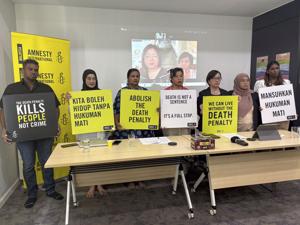A Malaysian man sentenced to death for heroin trafficking is scheduled to be executed this week in Singapore. Activists against capital punishment are intensifying their efforts to halt the practice in the city-state as they voice concerns over the upcoming execution. If carried out, Datchinamurthy Kataiah, aged 39, will be the third Malaysian and the eleventh person executed in Singapore in 2023.
The case has drawn significant attention from various human rights organizations, which argue that the death penalty is an ineffective deterrent to drug trafficking. According to anti-death penalty activists, the execution highlights ongoing issues surrounding the legal system in Singapore, known for its strict drug laws.
Singapore maintains a mandatory death penalty for specific drug trafficking offenses, which has sparked widespread debate both domestically and internationally. Critics argue that the laws disproportionately affect marginalized individuals and do not address the root causes of drug abuse and trafficking.
In recent years, there has been a growing movement advocating for the abolition of the death penalty in Singapore. Activists are calling on the government to reconsider its stance on capital punishment, citing the need for a more rehabilitative approach to drug-related offenses.
The execution of Kataiah is set to take place in the coming days, and the situation is being closely monitored by various groups advocating for human rights. They emphasize the importance of exploring alternatives to the death penalty, which they argue can lead to a more just and humane society.
As the date approaches, calls for clemency from activists and various organizations continue to echo. The future of capital punishment in Singapore hangs in the balance as public discourse around the issue remains highly charged.
The debate over the death penalty is not confined to Singapore alone; it reflects broader global discussions on human rights and the effectiveness of capital punishment as a deterrent. Advocates for reform urge the Singaporean government to take into account international norms and the evolving perspective on justice and rehabilitation in the criminal justice system.






































































